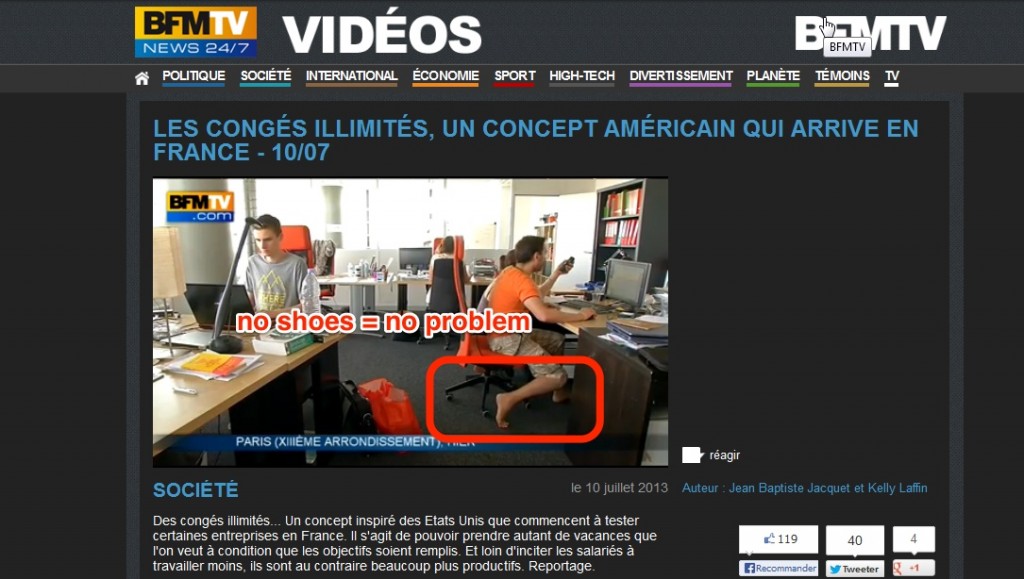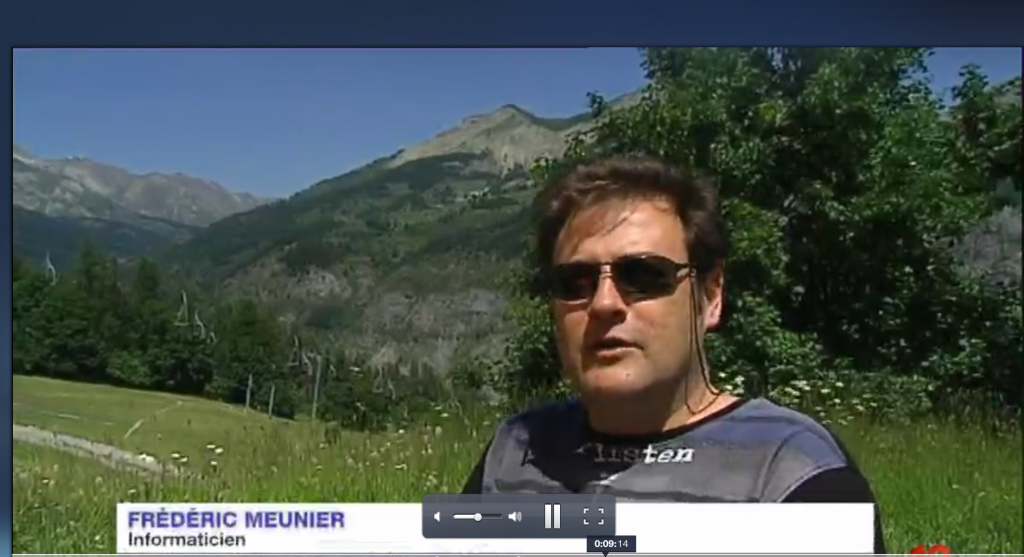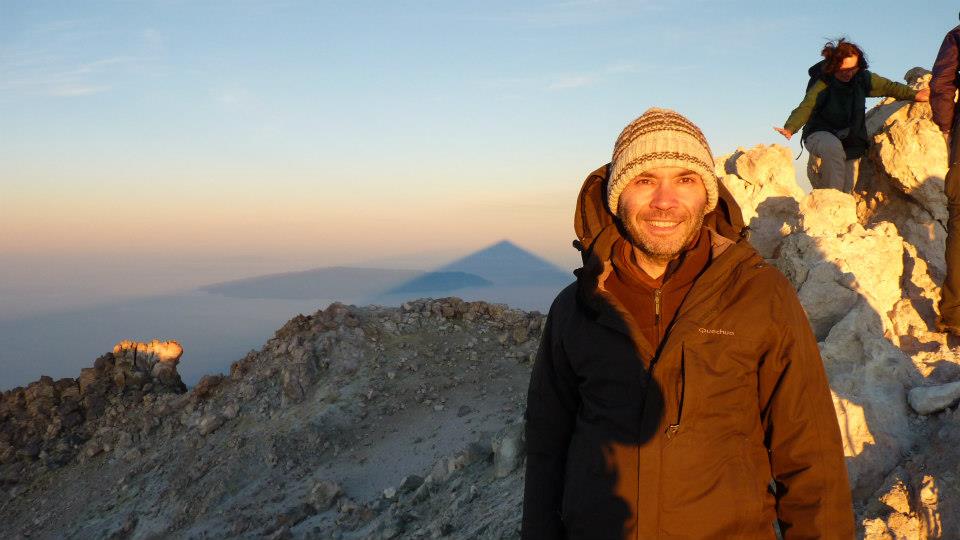This past week, our team was featured on 3 different French Television stations for our fairly unique policy of “unlimited vacation”… and also for the fact that we don’t all wear shoes in the office 😉 Unlimited vacation has been all the rage for the past few years, especially in high-tech startups. Below we’ll explore how we arrived at such a policy, and hear from other industry leaders that have opted for or against this kind of a policy.
Leave us a comment and let us know what you think, and at the bottom of the post are also the three video segments (in French) and the team’s recent vacation pics!

As the only American (Brad, Community Manager) on WriteThat.name’s team, I must say that when I realized that all French professionals were entitled to 5 weeks of paid vacation, I had to ask myself… wow! but how does that work? In the US, if you’re lucky, you get 2 weeks or even 3 weeks paid vacation, but it’s not an entitlement and not regulated by the government (unlike France). Moreover, a large portion of the workforce in the US gets 0 paid hours off, and I know just how precious vacation is as I was a part of that workforce for a few years (fine-ding cook). AND YET, now in the states, some companies are offering unlimited vacation, so why are they doing it and what’s the inside story?
So, how does it work? It all boils down to culture: companies like Evernote or Netflix or WriteThat.name have unlimited vacation policies and have a company culture that focuses on results, and individual responsibility for one’s own mission within their organization. In an article for “Room for Debate” in the New York Times, Dharmesh Shah, Hubspot co-founder and CTO shares a very poignant point of view:
“Vacation policies are predicated on the notions that your work happens in the office, your life happens at home and vacation is an escape from the daily stresses in both of those places. Our company has employees who do their best work after midnight — I happen to be one of them — and others who spend much of their time at the office coordinating customers’ schedules or their own child care arrangements. We favor innovative results over inflexible rules, and we believe doing so gives the employees the autonomy to be awesome.”
Likewise, our CEO, Philippe Laval mentioned in one of the recent TV interview that at his previous company there was a very nice vacation policy, but that the vacation approval and tracking system made it a bit inflexible, so he wanted to do something different with his new startup, WriteThat.name. So, now the choice of when each teammate will go on vacation, or take off time to go to the dentist’s office etc is completely up to them, and if their responsibilities towards team goals are compromised then they can lean on someone else on the team, or work a little harder to catch up after their time off. In the end, it definitely does create a corporate culture that is “us-oriented” as opposed to “company-oriented” or a more hierarchal “us and them”. The bottom line is that we’re not about “counting hours” but “getting results” and this system works well for us.
Also from the “Room for Debate” column, here’s an interesting and “opposite” point-of-view from Levi Felix, the founder of Digital Detox and the director of Camp Grounded, a tech-free summer camp for adults:
Offering unlimited vacation time without set parameters or intentions for employees and management does nothing but exacerbate problems of [overworking ie habitual e-mail checking, not wanting to let anyone down, fear of our co-workers impressing management in our absence, if it’s not our company that innovates, another will do it faster. So we continue working, wherever we are, at all times]. [There is a need to] … first, create rules and clear boundaries for what it means to be “on vacation” (both for management and for employees). Set expectations and empower team members to support one another in the effort to unplug.
Second, provide programming options or a menu of experiences that invest in the sustained wellness of team members. Retreats, classes and nature programs give individuals and teams the permission to completely step away from work and recharge — free of guilt.
Being a community manager for a startup, I understand this 100% as I’m often online from early AM to late in the evening. So, when it came time for me to get married in August of 2012, my teammates were gracious enough to make sure that I could be 100% offline for 2 wonderful weeks, and then again for my honeymoon for another 10 days in May 2013. Now, I wonder how I’d look at our team if I hadn’t been able to take off that time… honestly, I know it would’ve alienated me from the company more than anything else if I felt I HAD to be on email, or if I hadn’t been able to take time off then for one reason or another.
Some companies like Evernote are even going a step further by giving the employees that DON’T want to take an unplugged vacation a $1000 to do so and to come back and share with their team what they did. This drive to give your teammates a breath of air, a bit of change, something to keep them from burning-out is so important, AND NOT ONLY for the individual but for the company as Joe Reynolds says so clearly in his post on Inc which was one of the first on the subject:
Through building a company on accountability, mutual respect, and teamwork, we’ve seen our unlimited vacation day policy have tremendous results for our employees’ personal development and for productivity. There. I said it. I think Red Frog is more productive by giving unlimited vacation days. Here’s why:
1) It treats employees like the adults they are. If they’re incapable of handling the responsibility that comes along with having unlimited vacation days, they’re probably incapable of handling other responsibilities too, so don’t hire them.
2) It reduces costs by not having to track vacation time. Tracking and accounting for vacation days can be cumbersome work. This policy eliminates those headaches.
3) It shows appreciation. Your employees will need unexpected time off and some need more vacation than others. By giving them what they need when theyneed it, you show your employees how much you appreciate them and they reciprocate by producing more great work.
4) It’s a great recruitment tool. We hire a mere one out of every 750 applicants at Red Frog. When you combine fantastic benefits with a positive culture, it’s noticed.
On that note, a few well-earned and well-enjoyed WriteThat.name vacation moments 😉
Thomas “tech”, our middleware and front end techie, being cautious in Cambodia

Adi, our marketing director in the French vineyards outside of Lyon (Villié-Morgon, Beaujolais)

Philippe, our CEO, heading to a birthday party on the kite-surfing haven of Houat in Western France.

Gaelle, the CSO, in the mountains of Chamonix

Thomas “Biz”, who runs our corporate accounts, on the island of Mauritius

Fanny, the do-it-all tech and linguist, checking out Le Lot ( a southwestern region in France) with “Seigneur” the local guide 😉

Brad, the community manager, soaking up the good vibes on the Croatian island of Mljet

Fred, our CTO, who was on Vacation when all the filming was going on, so 1 TV station actually went to visit him at his getaway in the Alps!

Lastly, Sylvain, Kwaga’s Core Engine and Outlook developer, on top of the highest mountain in Spain.

Here’s the video of the segment that was on BFM.Tv (in french) and you can view the other two on LCI and here on M6 (at 9 minutes).